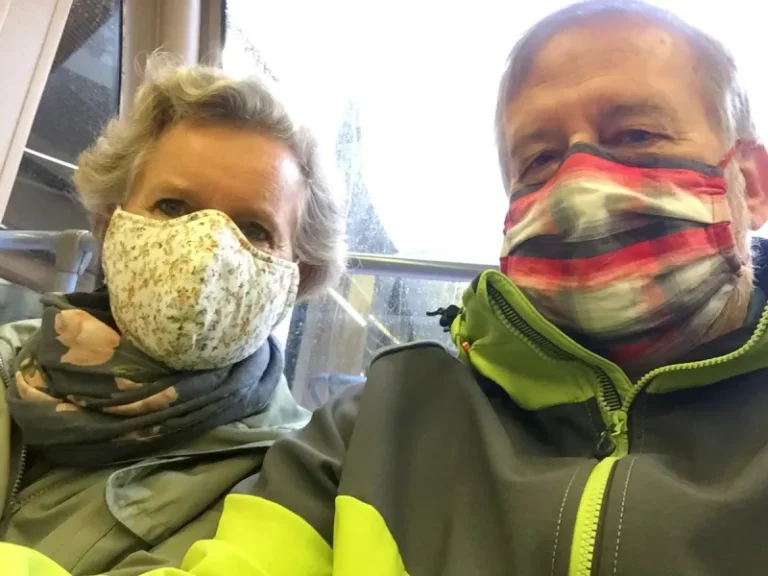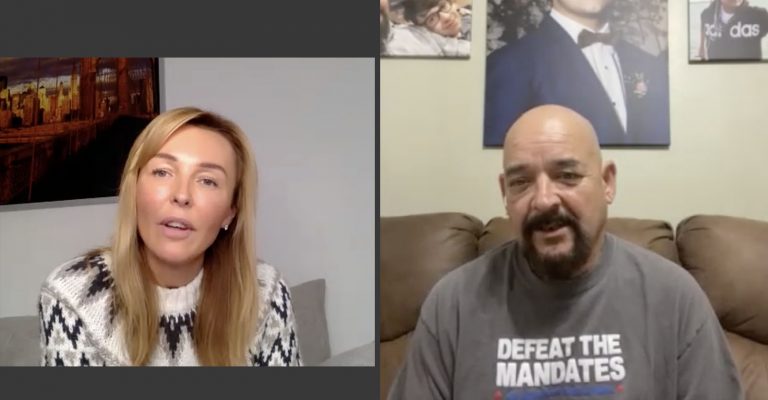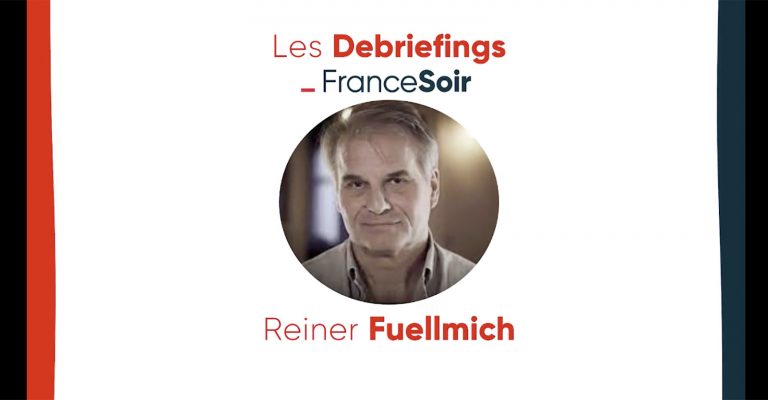Why the Pandemic Probably Started in a Lab, in 5 Key Points + More
The Defender’s COVID NewsWatch provides a roundup of the latest headlines related to the SARS CoV-2 virus, including its origins and COVID vaccines. The views expressed in the excerpts from other news sources do not necessarily reflect the views of The Defender.
Why the Pandemic Probably Started in a Lab, in 5 Key Points
On Monday, Dr. Anthony Fauci will return to the halls of Congress to testify before the House subcommittee investigating the COVID-19 pandemic. He will most likely be questioned about how the National Institute of Allergy and Infectious Diseases, which he directed until retiring in 2022, supported risky virus work at a Chinese institute whose research may have caused the pandemic.
Although how the pandemic started has been hotly debated, a growing volume of evidence — gleaned from public records released under the Freedom of Information Act, digital sleuthing through online databases, scientific papers analyzing the virus and its spread, and leaks from within the U.S. government — suggests that the pandemic most likely occurred because a virus escaped from a research lab in Wuhan, China. If so, it would be the most costly accident in the history of science.
Here’s what we now know: The SARS-like virus that caused the pandemic emerged in Wuhan, the city where the world’s foremost research lab for SARS-like viruses is located. At the Wuhan Institute of Virology, a team of scientists had been hunting for SARS-like viruses for over a decade, led by Shi Zhengli.
Their research showed that the viruses most similar to SARS‑CoV‑2, the virus that caused the pandemic, circulate in bats that live roughly 1,000 miles away from Wuhan. Scientists from Dr. Shi’s team traveled repeatedly to Yunnan province to collect these viruses and had expanded their search to Southeast Asia. Bats in other parts of China have not been found to carry viruses that are as closely related to SARS-CoV-2.
When the COVID-19 outbreak was detected, Dr. Shi initially wondered if the novel coronavirus had come from her laboratory, saying she had never expected such an outbreak to occur in Wuhan. The SARS‑CoV‑2 virus is exceptionally contagious and can jump from species to species like wildfire. Yet it left no known trace of infection at its source or anywhere along what would have been a thousand-mile journey before emerging in Wuhan.
Fauci Testifies Publicly Before House Panel on COVID Origins, Controversies
Dr. Anthony Fauci, the top U.S. infectious disease expert until leaving the government in 2022, faced heated questioning Monday from Republican lawmakers about the origins of the COVID-19 pandemic.
A Republican-led subcommittee has spent over a year probing the nation’s response to the pandemic and whether U.S.-funded research in China may have played any role in how it started. Democrats opened the hearing saying the investigation so far has found no evidence that Fauci did anything wrong while missing an important opportunity to prepare for the next scary outbreak.
This time around he faced a new set of questions about the credibility of his former agency, the National Institutes of Health. Last month, the House panel revealed emails from an NIH colleague about ways to evade public records laws, including by not discussing controversial issues on government email.
Republicans also have accused Fauci of lying to Congress when he denied in May 2022 that his agency funded “gain of function” research — the practicing of enhancing a virus in a lab to study its potential real-world impact — at a lab in Wuhan.
“It would be molecularly impossible” for the bat viruses studied with EcoHealth’s funds to be turned into the virus that caused the pandemic, Fauci reiterated in Monday’s opening statement.
WHO Member Countries Approve Steps to Bolster Health Regulations to Better Brace for Pandemics
The World Health Organization said member countries on Saturday approved new steps to improve global preparedness for and response to pandemics like COVID-19 and mpox, and set a new deadline for agreeing on a broader treaty.
Countries agreed by consensus to amend the International Health Regulations, which were last changed in 2005, such as by defining the term “pandemic emergency” and helping developing countries to gain better access to financing and medical products, WHO said.
The move came as the U.N. agency ended its six-day World Health Assembly this year, after plans to adopt a more sweeping pandemic “treaty” at the meeting was shelved largely over disagreements between developing countries and richer ones about better sharing of technology and the pathogens that trigger outbreaks.
But countries agreed to complete negotiations on the pandemic accord with the year, “at the latest,” WHO said.
Scientists Race to Perfect New Oral COVID Treatment Poised to Replace Paxlovid
Researchers at Rutgers believe they are among the lead in developing an oral COVID-19 treatment that could supplement or replace Paxlovid, an antiviral drug that aids in preventing hospitalizations among high-risk patients.
Their report, published in the journal Science, shows that an alternative medication, a viral papain-like protease inhibitor, inhibits disease progression in animals, a necessary step before human drug trials.
The Rutgers team hoped to make a drug that interfered with viral papain-like protease (PLpro), a protein that performs important functions in all known strains of COVID-19. Creating such a drug required detailed information about PLpro’s structure, which Wang’s team got from the Arnold Lab at Rutgers’ Center for Advanced Biotechnology and Medicine (CABM).
Laboratory testing established that the most effective of those drug candidates, a compound dubbed Jun12682, inhibited several strains of the SARS-CoV-2 virus, including strains that resist treatment with Paxlovid.
‘Egregious and False Claims’: MOH Rejects People’s Power Party’s Call to Suspend COVID Vaccination
The Ministry of Health has rejected calls by the People’s Power Party (PPP) to temporarily suspend Singapore’s COVID-19 vaccination program.
The political party, founded by Goh Meng Seng, issued a statement on May 29 calling for MOH and the Health Sciences Authority (HSA) to halt the administering of vaccines in lieu of the “increasing” number of reports regarding the adverse effects associated with the vaccine.
It cited “studies and analyses by prominent medical experts”, which claimed that COVID-19 vaccines caused high incidences of severe side effects. The party also claimed that Singapore had been experiencing “unusual and exceptionally high excess deaths of at least 20% when the COVID-19 vaccine was introduced.”
In a statement on Monday (June 3), the Health Ministry dismissed the PPP’s claims as “egregious and false.”
U.S. FDA Advisers to Consider if New COVID Shots Should Target JN.1 Variant
Advisers to the U.S. Food and Drug Administration will vote whether to recommend that COVID-19 vaccines for 2024-25 should target the JN.1 variant, the most dominant this year, documents filed on Monday showed.
Shares of Novavax (NVAX.O) soared 11% in morning trade, after the documents were released. The company had said last month it would only be able to offer a COVID vaccine in the United States this autumn if regulators accept the shot it started manufacturing to target the JN.1 variant.
The FDA’s staff in separate documents said vaccine makers developing the new booster shots may need to consider targeting one of the JN.1 subvariants such as KP.2, as further evolution of the virus could take it away from the older strain. The documents were posted ahead of the advisers’ meeting on Wednesday. The meeting was postponed from May 16 as the FDA sought more time to “obtain surveillance data and other information” on the circulating virus.
COVID Will Still Be Here This Summer. Will Anyone Care?
By now, it’s as familiar as sunscreen hitting the shelves: Americans are headed into another summer with new coronavirus variants and a likely uptick in cases.
This is shaping up to be the first COVID wave with barely any federal pressure to limit transmission and little data to even declare a surge. People are no longer advised to isolate for five days after testing positive. Free tests are hard to come by. Soon, uninsured people will no longer be able to get coronavirus vaccines free.
Inflation Pressures Lingering From Pandemic Are Keeping Fed Rate Cuts on Pause
Hopes for interest rate cuts this year by the Federal Reserve are steadily fading, with a stream of recent remarks by Fed officials underscoring their intention to keep borrowing costs high as long as needed to curb persistently elevated inflation.
A key reason for the delay in rate cuts is that the inflation pressures that are bedeviling the economy are being driven largely by lingering forces from the pandemic — for items ranging from apartment rents to auto insurance to hospital prices. Though Fed officials say they expect inflation in those areas to eventually cool, they’ve signaled that they’re prepared to wait as long as it takes.
Yet the policymakers’ willingness to keep their key rate at a two-decade peak — thereby keeping costs painfully high for mortgages, auto loans and other forms of consumer borrowing — carries its own risks.
Suggest a correction







